|
User
Reviews 85
Approval 97%
Soundoffs 189
News Articles 14
Band Edits + Tags 6,645
Album Edits 12,097
Album Ratings 15726
Objectivity 73%
Last Active 07-27-22 7:57 am
Joined 12-20-10
Review Comments 854
| Discovolante's Best of 1986 (Japan Edition)
From the beginning of the year to the end, via the Sputnik release calendar. | | 1 | 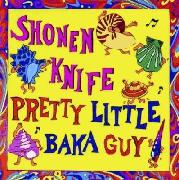 | Shonen Knife
Pretty Little Baka Guy
Although it took them five years to do so, beloved all-female band Shonen Knife finally hit the mark with the release of their 1986 album "Pretty Little Baka Guy". Not only was it their first to cause a stir in the underground alternative scenes in the west, it was also their first that showcased their knack at creating indie pop earworms. It's imperfect, and yet nearly perfect at the same time. | | 2 | 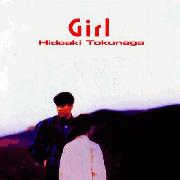 | Hideaki Tokunaga
Girl
Hideaki Tokunaga started out his career in the early 80s by appearing on a widely broadcasted talent show (think of something alongside Star Search), but was ultimately rejected. He pushed on and by the end of the 1980s, was one of Japan's biggest male pop stars. It all started with his 1986 debut "Girl", which, while initially a commercial flop, would eventually be seen as one of his strongest works, spearheaded by one of the most soulful, heartfelt pop ballads in Japanese music history, "Rainy Blue", which became well known overseas through the freakishly fanatical fandom of Komi Can't Communicate. | | 3 | 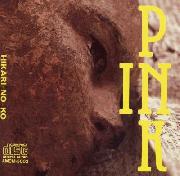 | Pink (JPN)
Hikari no ko
Pink have the distinction of being one of the most unorthodox and captivating bands of 1980s Japanese music, and although they had very limited mainstream success during their initial run, they have since developed a fair-sized cult following with most of the members of the band going on to become underground legends in their own right. Pink released two EP's in 1985 with pretty simplistic new wave trimmings before melding their own style with the release of their first full length album "Hikari no ko" in 1986. On "Hikari no ko", elements of psychedelia, funk, R&B, art rock and new wave are collided to make one of the most remarkable albums in not just 80s Japanese music, but Japanese music in general. | | 4 | 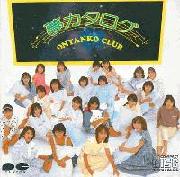 | Onyanko Club
Yume Catalog
With their second album "Yume Catalog", Onyanko Club grinds out some more quality beautifully cheesy 80s pop for the masses, and something their predecessor didn't: topped the Oricon charts. The lyrics are, while not necessarily as explicit as on "Kickoff", still full of double entendres, and the technique in melodies used in "Yume Catalog" in particular are still used in just about every idol group to this day. | | 5 |  | Mayumi Chiwaki
Angel-We Are Beautiful
Breaking out on her own in 1985 following the dissolvement of the cult new wave pop duo Menu, Mayumi Chiwaki would release her first EP in 1985, "Jewels", which was a fine effort indeed. But it wasn't until a year later with "Angel-We Are Beautiful" that she really stumbled into her own sound. While "Jewels" was a fine album, it was a bit too reliant on hard rock, while "Angel-We Are Beautiful" had a more mainstream friendly and quite honestly much more effective blend of high-paced post-punk and divine 80s pop. The album that put Chiwaki on the trail to become one of the most iconic alternative idols of the decade. | | 6 |  | TM Network
Gorilla
By the time TM Network released their third album "Gorilla", they successful worked and marketed their asses off to become burgeoning pop stars. "Gorilla" would be their first album to break the Oricon top 20 at number 12 and takes the broader new wave sound they experimented with on their previous album "Childhood's End", and effortlessly expands upon it in a huge way, concocting their booming, robust pop sound that would become their trademark. | | 7 |  | Psy-S
Pic-Nic
After releasing a decent debut in 1985, "Different View", Psy-S released their splendid follow-up "Pic-Nic", which would put them on the track to becoming one of Japan's most musically delightful acts of the 1980s. Its whimsically grandiose and soulful take on new wave was far from the norm in Japanese mainstream market, and deservingly so made Psy-S the young new faces in Japanese new wave seemingly overnight. | | 8 |  | Akina Nakamori
Fushigi
Akina Nakamori's "Fushigi" has garnered the reputation of being one of the best 80s Japanese pop albums not just in its home country, but overseas as well. It has a far more abstract and artistic nature than her previous albums and serves as an awe-inspiring maturity statement. Akina Nakamori would never again reach such breathtakingly staggering heights in terms of sheer art pop, and quite honestly neither would anyone else in Japanese music. | | 9 |  | Kome Kome Club
E-B-I-S
If their previous album "Shari-Sharithm" showed Kome Kome Club on the bubble of success, "E-B-I-S" would show Kome Kome Club on top of that bubble. It has a noticeably more slick and suave production, although the focus on a hybrid of new wave-R&B-pop is still very much there. An album that shows one of Japan's most cutting edge pop acts on top of the world creatively. | | 10 | 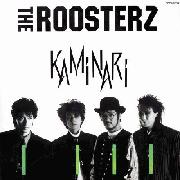 | The Roosters
Kaminari
On "Kaminari", The Roosters change courses again, this time focusing on hard boogie rock. While this would mean a catastrophe for maybe any other band, The Roosters were not exactly every other band and instead of being disastrous, "Kaminari" ends up being yet another strong album in their catalog. | | 11 | 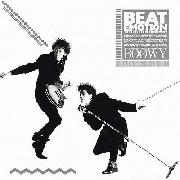 | Boowy
Beat Emotion
An album that is largely thought of to have changed the landscape of Japanese rock music forever, "Beat Emotion" is essentially the main reason why Boowy are considered to be such gods in Japanese music. With a length of 14 songs, "Beat Emotion" on the surface would seemingly run into trouble with too much filler. But the thing is that every song on here is of very high caliber, with the album containing Boowy's crowning achievement and signature song "B-Blue", which has been covered by virtually every Japanese visual band for the following decade on. | | 12 |  | Chage and Aska
Mix Blood
Ginormous superstars in the making Chage and Aska release one of their best albums in their lengthy catalog with their masterpiece "Mix Blood". With "Mix Blood", Chage and Aska officially shake off their folky past once and for all and instead embark towards ingenious pop music. One of the best and most painfully necessary switch-ups in Japanese popular music. | | 13 |  | Miyuki Nakajima
36.5℃
After releasing three albums of lesser-and-lesser quality, Miyuki Nakajima finally released her first masterpiece since 1983's "Yokan": "36.5℃", which would also prove to be one of her most commercially successful albums to date as well. There's a lot more of a focus on heavily synthesized pop rock, with her brilliant melodies and cunning lyrics rising to the top. Definitely one of Nakajima's very best moments. | | 14 | 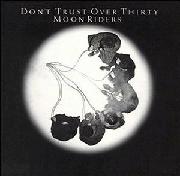 | Moonriders
Don't Trust Over Thirty
With "Don't Trust Over Thirty", Japanese art rockers Moonriders return to claim their crown as one of the most inventive bands of the decade. "Don't Trust Over Thirty" is one of their most disjointed efforts to date, which works surprisingly very well in their benefit as an album full of unpredictable surprises. This album is comprised of extremely well executed and tight artsy new wave tinged pop, but the best moment has to be the self-titled track, a cool breeze singalong which has a chorus that will remain stuck in your head for quite a while. | | 15 | 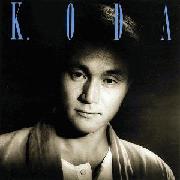 | Kazumasa Oda
K.Oda
In 1986, when Off Course was winding things up slowly but surely, frontman Kazumasa Oda decided to throw his hat in the ring with his own solo album, "K.Oda". A relatively short album of 8 tracks that runs a total of 36 minutes, the songs are intimate, gentle and just sooth. A beautiful start to a truly lustrous solo career. | |
|
